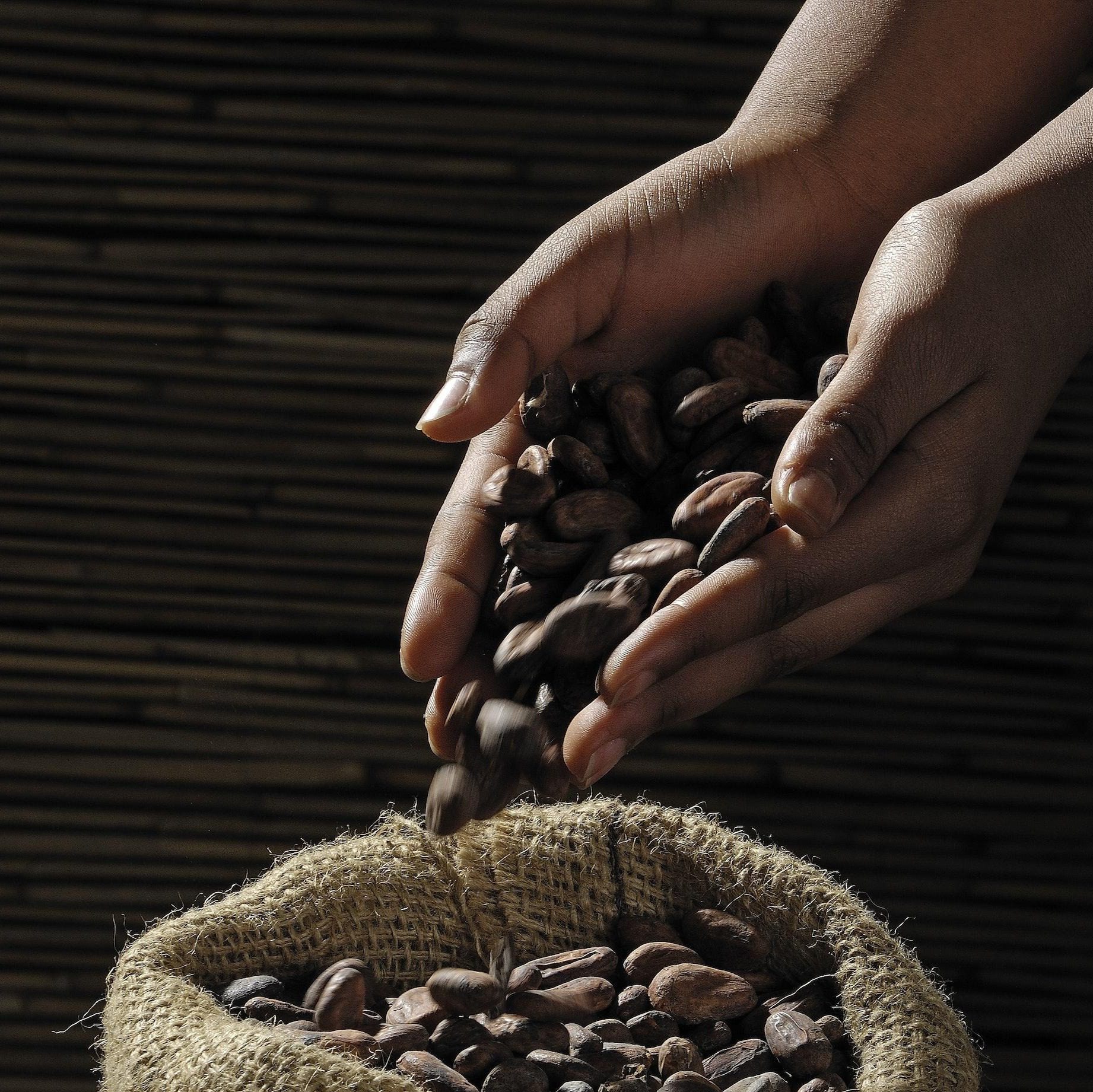FUEL IMPORTS SURGE TO 71% AS MARKETERS DITCH LOCAL REFINERIES
Fresh data from the downstream regulator of the oil sector has revealed that marketers have resumed large-scale importation of refined petroleum products, choosing not to patronise local refineries. Findings by The PUNCH, based on the latest fuel supply data obtained from the Nigerian Midstream and Downstream Petroleum Regulatory Authority, showed that a staggering 71.38 per cent of Nigeria’s daily petrol consumption in May and June 2025 was met through imports. The remaining 28.62 per cent was sourced from the $20bn Lekki-based Dangote Petroleum Refinery. This indicates that marketers, who are expected to access products locally with ease in the country, are instead spending the country’s scarce foreign exchange to import refined petroleum products. The NMDPRA disclosed this during a presentation to the Federation Accounts Allocation Committee for the month of June 2025. Our correspondent obtained a copy of the presentation on Sunday. An analysis of the FAAC document revealed that out of a combined total of 3.25 billion litres of Premium Motor Spirit consumed during the two months, 2.32 billion litres were imported, while only 927 million litres came from local refineries. A comparative analysis of petroleum product supply and distribution showed that June’s PMS import stood at 34.10 million litres per day, making a total of 1.023 billion litres, while local production contributed just 15.2 million litres daily and 455,188,512 litres within the period. In May, imported PMS averaged 43.22 million litres daily, totalling 1.297 billion, with local refining accounting for 15.74 million litres, totalling 472.07 million per month. Further analysis disclosed that 455.2 million litres of PMS were trucked out from refineries, while depots accounted for 985.6 million litres, representing an 18.55 per cent increase from the 1.22 billion litres recorded in May. The average daily distribution was 48 million litres in June, from 54 million litres, with the number of trucks rising from about 37,000 in May and 32,000 in June. It also showed a monthly supply variance of -16.42 per cent between May and June, dropping from 1.77 billion litres in May to 1.48 billion litres in June. With an average pump price of N905 per litre, marketers spent a total of N2.1tn on imports within the review period. A state-by-state breakdown of truck out figures showed that Lagos State alone accounted for 205.66 million litres, the highest among the 36 states and the FCT. Ogun State followed with 88.69 million litres, while the Federal Capital Territory came third with 77.5 million litres. Other top-consuming states included Oyo (72.8 million litres), Delta (68.5 million litres), and Kano (68.2 million litres). The data suggests that the southwestern and north-central regions continue to lead in fuel demand, a trend analysts attribute to higher population densities, economic activities, and increased vehicular movement in urban centres. In contrast, states such as Yobe (11.7 million litres), Jigawa (9.4 million litres), and Ekiti (15.3 million litres) recorded the least volumes of PMS dispatched during the same period. Apart from PMS, similar reliance on importation was seen in the supply of Aviation Turbine Kerosene and Household Kerosene, where over 99 per cent of total volumes were imported. ATK recorded a daily average of 1.89 million litres in June, up from 1.80 million litres in May, while HHK’s daily supply declined from 1.25 million litres in May to 0.86 million litres in June. For Automotive Gas Oil (diesel) used predominantly by industries and logistics firms, imported diesel rose from 7.3 million litres daily in May to 8.7 million litres in June, despite local production also increasing slightly. The report also disclosed that Liquefied Petroleum Gas was entirely imported, with zero local production recorded in both months. A total of 116.4 million litres was imported in May, but no LPG was supplied in June. This development comes against the background of renewed agitation by the President of the Dangote Group, Aliko Dangote, requesting President Bola Tinubu to include refined petroleum products in the list of items banned under the ‘Nigeria First’ policy of the Federal Government. Speaking at the just concluded Global Commodity Insights Conference on West African Refined Fuel Markets hosted by the Nigerian Midstream and Downstream Petroleum Regulatory Authority in partnership with S&P Global Insights, Dangote requested in clear terms that petrol, diesel, and other refined petroleum products be added to the items banned by the policy. According to him, fuel importation into Nigeria is killing local refining and discouraging further investments in the sector and even the economy. To remain viable, he urged governments across Africa to take deliberate steps as the United States, Canada, and the European Union have done to protect domestic producers from what he called unfair competition. “The Nigeria First policy announced by His Excellency, President Bola Tinubu, should apply to the petroleum product sector and all other sectors,” he stated. But this was unanimously rejected by oil marketers and industry analysts. Recall that daily fuel imports into the country had significantly declined to just 14 million litres per day in April, marking one of the lowest volumes recorded since the deregulation of the downstream sector. Speaking in an interview, the National Publicity Secretary of the Independent Petroleum Marketers Association of Nigeria, Chinedu Ukadike, warned that any move to ban the importation of petroleum products could cripple the industry and hurt the Nigerian economy. He noted that calls to outlaw fuel importation in favour of domestic refining, particularly by the Dangote refinery, were premature and could entrench a monopoly with dire consequences for independent marketers and consumers. “We fear monopoly. The fear of monopoly is the beginning of wisdom,” Ukadike said. “We have been battling with pricing for a very long time. Most of our marketers have lost millions of naira because of a pricing template that was once controlled by NNPC, and now seems to have shifted to Dangote,” Ukadike stated. He added that IPMAN was not against the success of the Dangote refinery but stressed that cheaper prices, rather than legislation, should be the tool to phase out imports. “If Dangote wants to monopolise, let him do it with lower prices. Compete on price, not by pushing for policies that eliminate competition.” He stated that despite being locally refined, Dangote’s PMS was not the cheapest on the market. Ukadike said independent marketers were under immense financial pressure and relied heavily on bank loans to sustain operations. He warned that any attempt to restrict their supply sources would threaten their survival and reduce consumer options. “Dangote has openly stated that he is not in the retail business. So how do we sustain retail operations when the only supplier is offering higher prices and we have no room to negotiate?” He further urged the Federal Government to address the high levies and port charges faced by marketers when lifting products from Dangote’s refinery in Lagos. Ukadike said, “Marketers are currently burdened by multiple charges from NPA, NIMASA, and others, many of them denominated in dollars. How can you talk about reducing pressure on forex while asking indigenous businesses to pay port charges in foreign currency?” Also, the National President of the Petroleum Products Retail Outlet Owners Association of Nigeria, Billy Gillis-Harry, kicked against the call to ban fuel Importation. He said no one company should be allowed to dominate the downstream sector in a free economy. While admitting that there is a need to ban the importation of some goods, he said these should not include fuel, stressing that Nigeria needs multiple sources of energy. “I don’t agree with Dangote. We are running a free economy. There’s no reason why any one company should have an overarching value on the entire industry. “Importation is not killing the economy. Importation is stabilising the sources of petroleum products. Importation of all products is useful,” he stated. Reacting, the Chief Executive Officer of PetroleumPrice.ng, Jeremiah Olatide, attributed the trend to importers’ ability to secure cheaper landing costs for petrol, in contrast to the coastal price structure used by Dangote Petroleum Refinery. He said the sharp pricing competition is currently rattling Nigeria’s downstream oil sector, with over 80 per cent of petroleum importers and private depots in Lagos selling petrol at rates lower than Dangote Refinery’s ex-depot price. The analyst disclosed this in an exclusive interview with The PUNCH on Sunday. Olatide said the development has significantly affected sales volumes at the $20bn Dangote Refinery, which only recently began phased distribution of refined petrol.

EQUITY MARKET GAINS N1.78TN AMID STRONG SENTIMENT
The Nigerian Exchange opened the week on a positive note as the equity market recorded a gain of N1.78tn in market capitalisation at the close of trading on Monday. The All-Share Index rose by 2,808.71 points, or 1.99 per cent, to close at 144,071.76, pushing the total market capitalisation to N91.2tn. This reflects a one-week gain of 6.59 per cent, a four-week gain of 19.08 per cent, and a year-to-date return of 39.98 per cent. In total, 811.09 million shares valued at N19.47bn were exchanged in 35,961 deals. This marked a 25 per cent decline in volume and a 27 per cent drop in turnover compared to the previous trading session, though the number of deals increased by four per cent. Out of 127 listed equities that participated in trading, 47 gained and 23 declined, while the rest closed flat. UPDC led the gainers’ chart, appreciating by 10 per cent to close at N5.94 per share. Lasaco Assurance and Royal Exchange also recorded 10 per cent gains each, closing at N2.86 and N1.65 per share, respectively. UAC of Nigeria rose by 9.97 per cent to close at N97.10, while Sovereign Trust Insurance gained 9.94 per cent to end at N1.88. On the losers’ list, Transcorp Power recorded a 10 per cent decline, closing at N288.00 per share. Academy Press followed with a 10 per cent loss to N9.90, while John Holt and Total Nigeria lost 9.59 per cent and 9.22 per cent, respectively. In terms of volume, FCMB Group led with 84.95 million shares traded, followed by Universal Insurance (82.51m), Fidelity Bank (45.43m), Aiico Insurance (40.15m), and Veritas Kapital (39.77m). GTCO led in terms of value with N2.76bn in trades, followed by Zenith Bank with N1.82bn, Dangote Cement recorded N1.58bn, FCMB posted N979.42m, and Fidelity Bank had N955.60m.

BANKING BOOMS WITH $3.1BN FOREIGN INFLOWS IN THREE MONTHS
Capital importation into Nigeria’s banking sector surged to over $3.1bn in the first quarter of 2025, according to data released by the National Bureau of Statistics on Tuesday. NBS data also showed that the manufacturing sector lost $62m in capital importation in the first quarter. The bureau, however, stated that capital importation into Nigeria rose significantly to $5.64bn during the review period, representing a 67.12 per cent increase compared to $3.38bn recorded in the corresponding period of 2024. The report also showed that capital inflows increased by 10.86 per cent quarter-on-quarter from $5.09bn reported in Q4 2024, indicating a positive trend in foreign investor confidence during the opening months of the year. In the banking sector, it noted that the total capital imported into the industry during the period stood at $3.13bn, representing 55.44 per cent of Nigeria’s total capital inflows of $5.64bn for Q1 2025. This marked a significant increase from the $3.38bn total capital importation recorded in the same period last year, reflecting a year-on-year growth of 67.12 per cent. Portfolio investment dominated the inflows, accounting for $5.20bn or 92.25 per cent of total capital imported during the quarter. Other investment inflows stood at $311.17m, while foreign direct investment recorded the least inflow at $126.29m. Following the banking sector, the financing industry attracted $2.10bn or 37.18 per cent of the total capital importation in Q1 2025, while the production and manufacturing sector received $129.92m, representing 2.30 per cent. Geographically, Abuja (Federal Capital Territory) emerged as the leading destination for capital importation with $3.05bn, accounting for 54.11 per cent of the total inflow. Lagos State closely followed with $2.56bn or 45.44 per cent. Ogun, Oyo, and Kaduna states recorded minimal inflows, receiving $7.95m, $7.81m, and $4.06m, respectively. On the origin front, the United Kingdom was the top source of capital inflows with $3.68bn or 65.26 per cent of total capital importation during the quarter. South Africa and Mauritius followed with $501.29m and $394.51m, respectively. Among financial institutions, Standard Chartered Bank Nigeria Limited led with $2.10bn, representing 37.29 per cent of total capital imported. Stanbic IBTC Bank Plc followed with $1.40bn or 24.78 per cent, while Citibank Nigeria Limited accounted for $1.05bn or 18.66 per cent. The NBS data also showed that total capital importation into Nigeria rose by 10.86 per cent from $5.09bn recorded in Q4 2024 to $5.64bn in Q1 2025, highlighting growing investor confidence in the country’s economy. It said the manufacturing sector lost $62m in capital importation. The performance calls into question the level of investor confidence and the pace of recovery in the sector. Despite a 67.12 per cent year-on-year rise in total capital inflows into the country, the manufacturing sector recorded a 32.31 per cent decline in capital importation in Q1 2025. In its capital importation data, the NBS reported that the manufacturing sector attracted $129.92m in Q1 2025, down from $191.92m in the corresponding quarter of 2024. The sector’s share of total capital importation also fell from 5.68 per cent in Q1 2024 to 2.30 per cent in Q1 2025. The manufacturing sector’s capacity to attract foreign investment has remained weak. The 2023-2024 window saw multinationals exit with a harsh operating environment in the height of economic reforms introduced by President Bola Tinubu. As the reforms weakened purchasing power and slowed consumption, manufacturers invested less. The Manufacturers Association of Nigeria noted that its members’ unsold finished goods rose by 87.5 per cent to N2.14tn in 2024. In 2025, the impact of the reforms, including the consolidation of the foreign exchange regime, led industry watchers to express cautious optimism that foreign investment would stabilise in the manufacturing sector. Notably, MAN Director-General Segun Ajayi-Kadir has noted that a half-year decline of 27.9 per cent suggested some improvement in inventory clearance and pricing strategies. But hopes of the rebound of foreign investment in manufacturing appear to be delayed. In a virtual interview with The PUNCH, the Director of the Centre for Promotion of Private Enterprise, Dr Muda Yusuf, assessed that the 32.31 per cent decline in capital importation, year-on-year, was “possibly an indication that the manufacturing sector is yet to fully recover from the shocks of the reforms.” Yusuf pointed to lingering investor perception, noting that the manufacturing sector suffered two major shocks, on forex and energy prices, that would take some time to soften before there is a change in a way that will incentivise more investors. He explained further: “There is also a possibility of those investors still feeling that the risk of investing in the real sector is still on the high side, because macroeconomic stability has only recently and gradually returned to normal. Yusuf remained hopeful of improved foreign investment in the manufacturing sector. He said, “We are seeing more stability now, and maybe present decisions may influence investments in the next quarter, because decisions to invest or not to invest in foreign direct investment are generally a very slow and painstaking decision. CPPE’s director added that relatively well-performing subsectors in manufacturing could provide a basis for more foreign investors to look in the direction of Nigeria. “Look at the prospects that exist in some of these sectors,” he remarked, “The good news is that while the manufacturing growth in Q1 2025 was just about 1.69 per cent, some of the subsectors in manufacturing did fairly well. Oil refining grew by 11.51 per cent. The chemical and pharmaceutical sector grew by 5.33 per cent. The cement sector grew by 4.94 per cent. The food and beverage sector grew by 3.48 per cent.”
FG, US PLEDGE STRONGER TIES TO BOOST ECONOMY
The Federal Government has reiterated its dedication to enhancing trade and investment ties with the United States as part of its broader strategy to drive economic growth and development. This commitment was made during a meeting between the Minister of Finance and Coordinating Minister of the Economy, Mr Wale Edun, and the United States Consul General to Nigeria, Mr Rick Swart, in Abuja. According to a statement issued on Tuesday by the ministry’s Director of Information and Public Relations, Mohammed Manga, the meeting was also attended by the Ministry’s Permanent Secretary, Mrs Lydia Shehu Jafiya, who represented the minister. highlighted the long-standing and strategic bilateral relationship between Nigeria and the United States. The statement read, “Represented by the Ministry’s Permanent Secretary, Mrs Lydia Shehu Jafiya, the meeting highlighted the historic and strategic bilateral relationship between Nigeria and the United States. “The minister emphasised that Nigeria values its partnership with the United States and will explore new frontiers to enhance investment opportunities, promote innovation, and contribute to sustainable development in line with the Renewed Hope Agenda of the President Bola Ahmed Tinubu-led administration.” The statement added that Edun reiterated that the Federal Government is fully dedicated to creating an enabling environment for Foreign Direct Investment to unlock greater investment opportunities in the country. He added that improved cooperation between Nigeria and the United States aligns closely with Tinubu’s economic reform agenda, which prioritises private sector participation, fiscal sustainability, and inclusive growth, according to the statement. Earlier, the United States Consul-General, Mr Rick Swart, commended the Federal Government for its ongoing reform initiatives and reiterated the United States’ commitment to supporting Nigeria’s economic development. He noted that the two nations have built a resilient and enduring partnership, one that will continue to explore new opportunities for collaboration in trade, investment, and capacity building. The statement read, “Speaking earlier, the US Consul-General, Mr. Rick Swart, commended the Federal Government for its ongoing reform initiatives and reaffirmed the United States’ commitment to supporting Nigeria’s economic development. “He stated that the United States and Nigeria have built a resilient and enduring partnership. We will continue to explore new opportunities for collaboration in trade, investment, and capacity building. Our goal is to support Nigeria in achieving broad-based economic growth and improving the lives of its citizens.” Swart also emphasised the need for transparent and business-friendly policies to guarantee the ongoing success of U.S. companies in Nigeria. Both sides voiced confidence in the future of their partnership and committed to strengthening economic ties, increasing trade, and boosting foreign direct investment in Nigeria.

DIASPORA BANKING PUSH YIELDS 2.7M NEW BVNS, OTHERS
The Central Bank of Nigeria recently took steps to expand financial services access with the launch of the Non-Resident Biometric Verification Number policy. The NRBVN platform, launched in collaboration with the Nigeria Inter-Bank Settlement System in May 2025, marked a transformative step in enabling Nigerians living overseas to obtain a Bank Verification Number remotely. With this system, Nigerians can access banking services from anywhere, saving time and travel costs while ensuring safe and secure transactions. The eNRBVN platform is equipped with robust Know Your Customer and Anti-Money Laundering frameworks, ensuring both compliance and security while enabling broader participation in Nigeria’s financial ecosystem. The NRBVN is a key component of a broader framework that includes the Non-Resident Ordinary Account and the Non-Resident Nigerian Investment Account. Combined, these solutions will provide Nigerians in the diaspora with greater access to savings, mortgage facilities, pensions, insurance products, and investment opportunities in the Nigerian capital market while maintaining the flexibility to repatriate returns under existing financial regulations. Since the launch, the Nigeria Inter-Bank Settlement System data indicated that the number of Nigerian bank account owners linked to BVN has risen. BVN enrolment rose by 2.7 million between December 2024 and July 2025 to 66.2 million. The Bank Verification Number project, which captures the uniqueness of every bank customer, is an innovative project introduced into the financial system by the Central Bank of Nigeria. The CBN introduced the BVN to safeguard bank customers, mitigate fraud, and bolster the Nigerian banking system’s resilience on February 14, 2014. The BVN scheme gives each bank customer a unique identifier and has continued to revolutionise the banking and payment systems while ensuring the safety of depositors’ funds. The project is now witnessing an enrollment surge, as the Olayemi Cardoso-led CBN continues to take strategic steps to advance financial inclusion in the country. On the financial inclusion front, the apex bank’s effort to boost inclusion has been yielding fruits, as indicated by the latest Access to Finance survey report presented by Enhancing Financial Innovation and Access, which revealed that despite challenging macroeconomic headwinds, Nigeria’s formal financial inclusion improved to 64 per cent in 2023 from 56 per cent recorded in 2020. The growth in financial inclusion in 2023 was mainly fueled by marginal growth in the banking population and growth in the use of non-bank financial institutions (such as fintechs), which rose to 12 per cent in 2023 from five per cent in 2020. Following the unveiling of the NRBVN in Abuja, the CBN boss directed Nigerian banks to proactively develop and offer products specifically tailored to meet the unique needs and preferences of the diaspora community. The NRBVN launch is seen as a major step to keep remittance inflows to the country soaring and dollar liquidity strong as the CBN eyes a $1bn monthly remittance target. At the launch of the NRBVN, the CBN governor, Cardoso, had explained that offering innovative and attractive financial solutions can greatly enhance diaspora participation, deepen financial inclusion, and significantly boost remittance inflows. The CBN boss maintained that the NRBVN is more than just a one-time initiative, as it forms the foundation of the apex bank’s broader digital transformation strategy aimed at improving and expanding access to financial services for Nigerians globally. He said, “Over the past year, our policy frameworks have undergone extensive refinements, informed by sustained dialogue with International Money Transfer Operators. The introduction of the willing buyer, willing seller regime, licensing of additional IMTOs, and market reforms that have facilitated currency convergence are notable examples. Consequently, remittance flows through official channels have risen markedly from $3.3bn in 2023 to $4.73bn last year. “With the introduction of NRBVN and complementary policy measures, we are optimistic about achieving our ambitious target of $1bn in monthly remittance flows, a goal we believe is entirely achievable given the growing trust and convenience in formal remittance channels”. Cardoso explained that a fully connected system will ensure that every Nigerian in the diaspora can confidently contribute to national development through trusted and cost-effective channels. He emphasised that the launch was not the final destination, but the beginning of a broader journey. “The NRBVN is a dynamic initiative, one that will continue to evolve in response to the needs of its users. It presents a unique opportunity to learn, to innovate, and to adapt. We encourage all stakeholders to engage actively, share insights, and help shape a system that serves millions of Nigerians across geographies and generations. The NRBVN is not just a tool; it is a bridge between Nigeria and its global citizens,” he said. Cardoso maintained that to meet the target of the initiative and drive diaspora remittance, collaboration and compliance with established regulatory frameworks remain essential. “All stakeholders must adhere strictly to the FX Code and other relevant regulatory guidelines. This is critical to ensuring market stability, integrity, and overall confidence in Nigeria’s financial system,” Cardoso warned. The CBN boss further invited the IMTOs to integrate with the NRBVN platform as part of a shared vision to build a secure, efficient, and inclusive financial ecosystem for Nigerians globally. Cardoso explained that a fully connected system will ensure that every Nigerian in the diaspora can confidently contribute to national development through trusted and cost-effective channels. He emphasised that the launch was not the final destination, but the beginning of a broader journey. He reiterated the CBN’s commitment to reducing the cost of remittances, which currently averages over seven per cent in Sub-Saharan Africa, according to World Bank data. Lowering these costs, he stated, will enhance the safety and appeal of formal channels while amplifying the socioeconomic impact of diaspora remittances on Nigerian households and the broader economy. The NIBSS data has shown that the number of Nigerian bank account owners linked to BVN hit 66.2 million at the end of July 2025. This is higher than the 64.8 million recorded in January 2025 and 63.5 million as of December 2024. The data showed that 2.7 million new BVN enrolments were recorded between December 2024 and July 2025. Further analysis of the NIBSS data showed that as of 2021, 51.9 million accounts were linked to BVN, it rose to 56 million in 2022, and 60.1 million in 2023, and closed 2024 at 63.5 million. FX inflows via IMTOs
- CAPITALDIGEST MARKET REVIEW, 09/02/2026February 9, 2026
- CAPITALDIGEST DAILYNEWS, 09/02/2026February 9, 2026
- CAPITALDIGEST MARKET REVIEW, 02/02/2026February 2, 2026
Enter your email address for receiving valuable newsletters.
- CAPITALDIGEST MARKET REVIEW, 09/02/2026U.S. DOLLAR REBOUND TO BE CUT SHORT BY RATE CUT BETS, DOUBTS OVER FED INDEPENDENCE:...February 9, 2026
- CAPITALDIGEST DAILYNEWS, 09/02/2026TAXES, FUEL HIKE SLOW BUSINESS GROWTH IN JANUARY – NESG REPORT The report showed that...February 9, 2026
- CAPITALDIGEST MARKET REVIEW, 02/02/2026DOLLAR WEAKENS ACROSS THE BOARD AS YEN CLIMBS ON INTERVENTION RISK The dollar moved sharply...February 2, 2026












